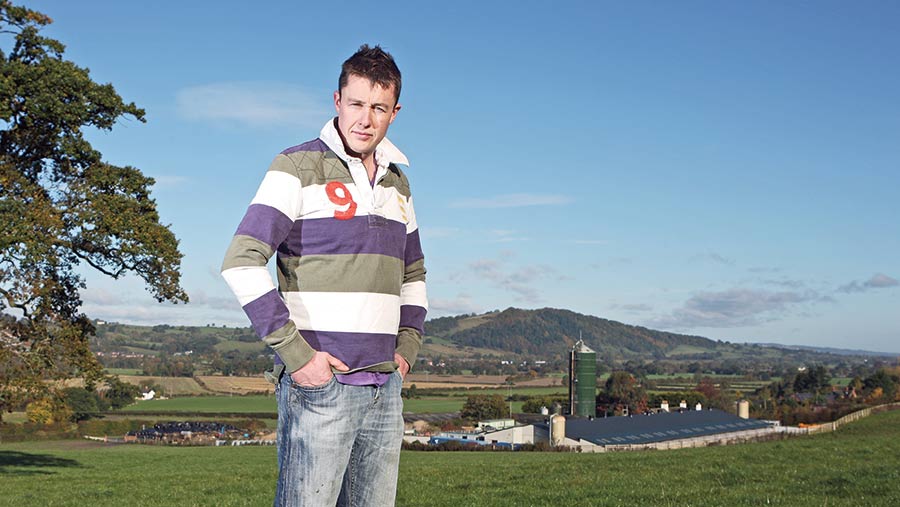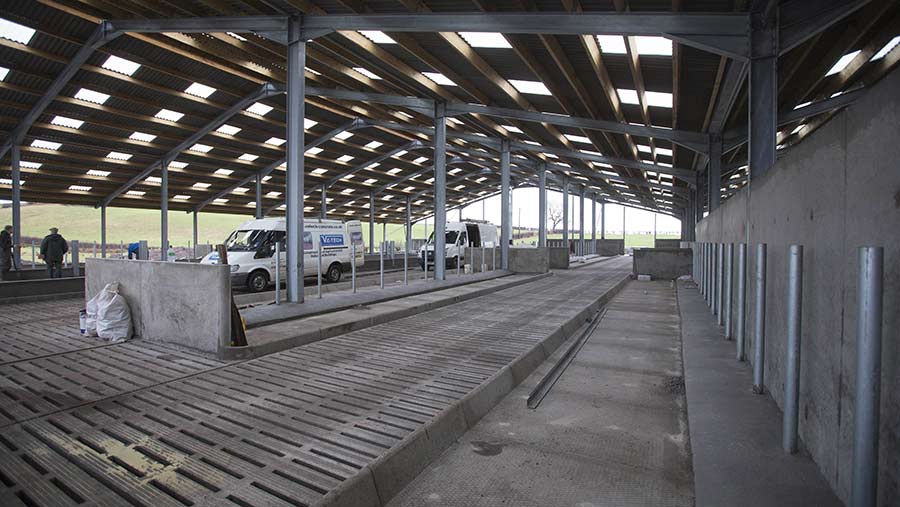How to deal with animal activists and difficult neighbours
 © Richard Drew/AP/REX/Shutterstock
© Richard Drew/AP/REX/Shutterstock The farming industry is finding itself at the sharp end of negative publicity.
Orchestrated campaigns by the animal rights lobby, social media activists and even disgruntled neighbours are becoming more widespread and seek to discredit the industry and individual farmers.
The advent of social media means the bad practices of a small minority are magnified to uncomfortable levels and captured for posterity.
We examine some of the issues and enlist experts to advise on how farmers can deal with these issues head-on and in a professional manner.
Engaging with activists on social media
Activists are gaining traction thanks to social media and are influencing public opinion about farming.
A single post can quickly be shared by thousands even when its content is misleading or even simply untruthful.
Within a very short time, this can have serious repercussions for a farm business or the wider industry. Campaigners can also get personal.
Case study
Livestock sustainability consultant Dr Jude Capper became a target for activists last year when she launched #Februdairy in response to #Veganuary – a social media campaign that encouraged people to try going vegan for a month.
She knew there were risks in raising her head above the parapet but was unprepared for the tide of “nastiness and vitriol’’ directed at her personally on Twitter.
“There was so much hate. I do wonder whether Twitter becomes an outlet for other issues in peoples’ lives,’’ Dr Capper says.
“We wouldn’t tolerate this sort of behaviour in public but on social media the boundaries of acceptability inexplicably shift.’’
But unless such messages contain specific threats, it is not a police matter, she explains.
Expert advice
Dr Capper admits she had a certain naivety in not foreseeing the reaction her initiative would provoke, but has since grown wiser.
Her advice to anyone who finds themselves in a similar situation is to be steadfastly polite and, if a question is a genuine one, to give an honest and transparent answer.
“If you get into an argument with an activist, neither of you are going to change your minds but others on Twitter will read that exchange.
“If we answer questions that are not rude or nasty, we gain public trust by responding in a polite manner, rather than allowing the exchange to descend into a series of rants,” she says.
- You can be sarcastic or jokey in your replies, but never use swear words.
- Keep responses to questions simple and short (on Twitter you are limited to 280 characters anyway).
- It is important to be open and transparent. The industry has been damaged when it has tried to hide stuff and been caught out.
- Establish a common ground with detractors – for example as a parent or a lover of wildlife and the environment.
- Sometimes it’s best to agree to disagree when two sides of a debate have very opposing views, as with dairy farmers and activists.
- If the debate is not going anywhere, the best policy is to end the exchange. If you would not continue with the conversation face-to-face it is time to end it. You have to know when to walk away and to shut down your computer or phone.
How to combat negativity in the national media caused by undercover investigations
New technology has made it easier for animal rights organisations to surreptitiously gather video footage or images on farms.
These undercover investigations are intended to document animal abuse and raise awareness of the treatment of animals in farming systems.
But if the footage is taken out of context it can often paint a false picture of the farm under scrutiny.
James Wilde of AHDB says any evidence of poor practice, in the livestock sector in particular, has a knock-on effect for the wider industry.
“It affects consumer confidence and gives detractors ammunition to suggest that poor standards are routine,” he says.
“The reality, of course, is that in the UK we have some of the highest standards in the world. We are, though, only as strong as the weakest link.’’
Case study
A livestock farmer who found himself in the national media after activists released covert video footage purporting to show poor practices on his farm says the experience took its toll both personally and financially.
“It had a terrible impact,’’ explains the farmer, who asked not to be named for fear of provoking further action.
“Allegations were made, and even though nothing was proven we had a customer who ceased trading with us purely because of the negative perception the publicity might have created with its retail customers.’’
There were personal repercussions too. “It knocks your confidence. It creates a level of anxiety that never really leaves you,’’ he says.
The incident triggered a succession of regulatory and welfare audits – the business passed every one of these but it took longer for it to rebuild its reputation.
He says the experience has taught him that farmers need to be in a position to withstand scrutiny.
“As farmers we can perhaps get desensitised, to think something is normal and OK, but if seen through the eyes of a consumer it wouldn’t be,” he says.
“I have told our workers that if during the course of the day they see something that doesn’t look right they must do something about it.
“We need to be able to stand up and say we are operating a legal trade and doing things to assurance standards.’’
He hired a public relations firm to help his business rebuild its reputation and has also hosted a number of open days.
Expert advice
As each incident is different, there are no hard and fast rules on what farmers should do if they find themselves at the wrong end of a negative media story.
But there are some key principles, as James Wilde of AHDB explains:
- Be honest and open where possible. If there are faults, admit them and show what is being done to rectify the issue.
- Act swiftly and avoid a repeat.
- Do correct, or attempt to correct, false information that is published.
- Check your insurance. Some farm business insurance policies will have some form of cover for a media event which can extend to employing a PR firm to help while the spotlight is on you.
- Report any incident. If you find, or have good evidence to suspect, that there has been an incursion on to your farm, report it to the police as soon as it happens.
- Seek the help of any farming organisation you are a member of. They may be able to offer media management advice or support, or other professional services such as legal guidance.
- Proceed with caution on social media. It does present an opportunity for you to publish your side of the story but it can make a bad situation worse, particularly if you engage with detractors who have limited knowledge of your business and a one-issue agenda.
How to deal with planning complaints from locals
Rows between farmers and local residents are nothing new.
Noises and smells associated with agriculture don’t always sit well with people living in the vicinity but when the disagreement is about planning, the consequences for a farm business can be far greater than a few cross words.
The economics of modern-day agriculture are forcing farmers in all sectors to expand, and more often than not this means building new infrastructure.
Satisfying local planners, highways agencies and environmental bodies is often the easy bit when there are disgruntled locals to contend with.
Case study

Fraser Jones © Richard Stanton
In January 2019, a 1,000-cow dairy at Lower Leighton Farm near Welshpool will become operational.
However, it has taken more than 11 years since farmer Fraser Jones submitted his original planning application.
His intended herd size earned the development a “mega dairy” label.
The stumbling block for Mr Jones’s application was its position next to a village and school and directly opposite a Grade 1 listed castle.
What followed was an orchestrated campaign by locals to halt its progress, but what they hadn’t reckoned on was Mr Jones’s tenacity.
He opted to apply for a 1,000-cow unit in a single application because he was advised by planners that had he submitted an initial plan for half that number, with a view to expanding further down the line, he was unlikely to be granted that second application.
“I decided to go for 1,000 in one go but it was a sensitive site so I anticipated there might be problems,’’ he admits.
“Other farms have expanded gradually, shed by shed, and the result has been units bigger than ours but those sites weren’t opposite a castle or next to a school and a village.’’
Although villagers were vocal in their opposition, this was not a planning issue, Mr Jones points out.
“If you have submitted an application and are doing all that is being asked of you to satisfy the planning process, that is all that matters,’’ he says.
“Although it was the local opposition that the media seized on, it was never an issue with the planners, the Environment Agency or the Highways Agency. They were always on our side and our approach was always to work with them, to do whatever was asked of us.’’
The visual impact was the big hurdle to be overcome to gain planning consent, and the development was eventually given the go-ahead on economic grounds.
The relationship between Mr Jones and the local community has since improved.
“We have been very open about the development as it progresses and people in the village have been very supportive,” he says.
“My attitude is to forgive and forget. What happened in the past is gone so there is no point dwelling on that.
“There are a couple of people who are still dead against the dairy and would love to see me fall flat on my face – but we are never going to change their minds.’’
Expert advice
Any new farm infrastructure is likely to have an impact on something or somebody, land agent Kathryn Williams warns. But by demonstrating that the benefits will outweigh the negative impacts you can make it more likely that a planning application will succeed.
Farmers who engage with consultees and the public before responses to an application have been submitted allows specific issues to be established.
“You may then have the opportunity to explain why you have chosen to do something in a particular way, to clear up areas of ambiguity,’’ suggests Ms Williams, of Shropshire-based Davis Meade Property Consultants.
“Not everybody will understand your business as well as you do, so explain your rationale for the project.’’
This approach is important, she says, as rural areas now have a mix of residents from different backgrounds, some living close to application sites.

© Tim Scrivener
“Not everyone will have a good understanding of agriculture and therefore explaining why a proposal is necessary may help them to understand the application and the need for it.’’
- If planning permission is sought to improve livestock health and welfare, for example, educating people about legislative requirements or general animal health may help to get them on side.
- In some cases, it is wise to engage a planning consultant or industry expert to advise on a proposal. A letter of support from a planning consultant, advising that alternative options have been considered, will elevate your application in the eyes of the Local Planning Authority as well as public consultation bodies and members of the public.
- If an application is referred to a planning committee and you have an opportunity to speak, prepare a concise case to support your proposal. Set out why you have made your proposal, how you have looked to engage with all persons with an interest, whether that be government departments or local residents, in order to minimise the impact of your proposal on their interests.
- The fewer the objections, the more likely an application is to succeed, so educating everybody with an interest from the outset is imperative.
